PRESENTATION: Käthe Kollwitz & Mona Hatoum-Taking A Stand
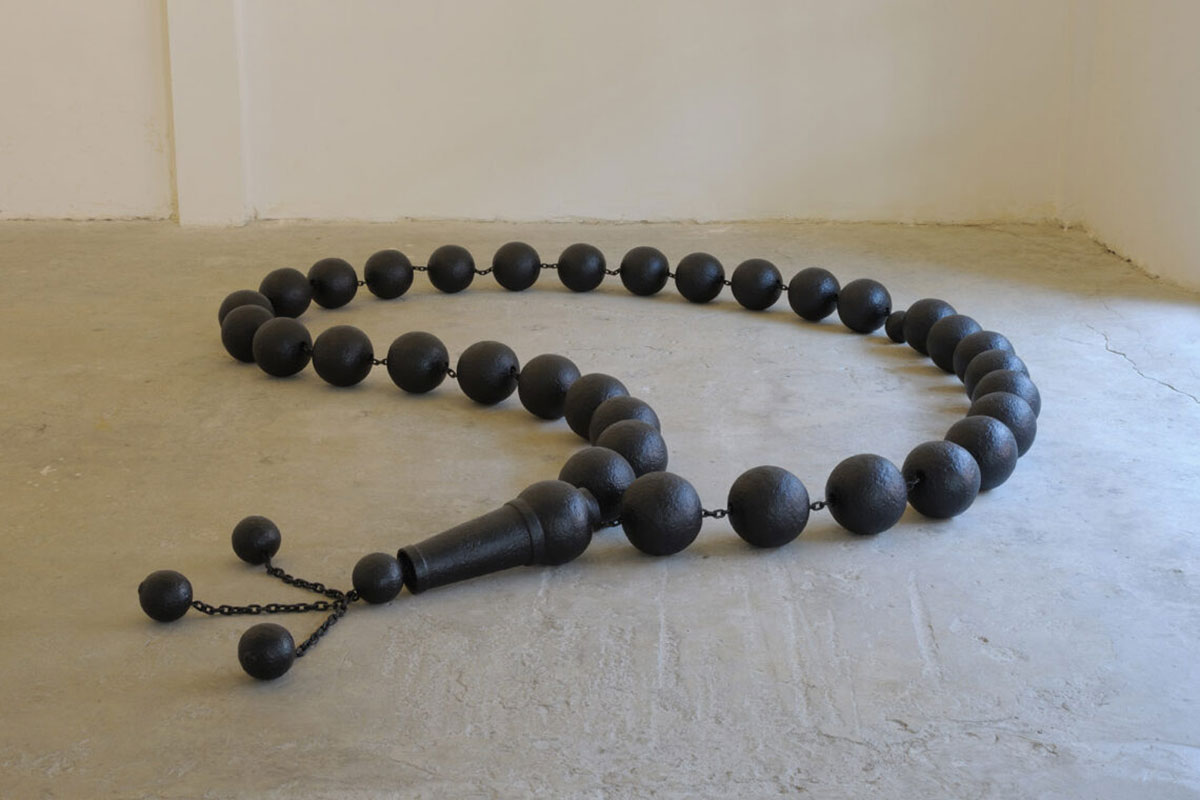 “Taking a stand” is more important than ever in today’s society – at a time characterised by worsening social inequalities, growing hostility towards those who think differently, increased experiences of flight and migration, conflict and war. The exhibition brings together two artists, Käthe Kollwitz and Mona Hatoum whose art serves as a memorial against suffering and oppression and stands for greater humanity.
“Taking a stand” is more important than ever in today’s society – at a time characterised by worsening social inequalities, growing hostility towards those who think differently, increased experiences of flight and migration, conflict and war. The exhibition brings together two artists, Käthe Kollwitz and Mona Hatoum whose art serves as a memorial against suffering and oppression and stands for greater humanity.
By Dimitris Lempesis
Photo: Kunsthalle Bielefeld Archive
The exhibition “Taking A Stand” brings together Käthe Kollwitz and Mona Hatoum, two artists (one historical and one contemporary) whose art is a memorial against suffering and oppression and for more humanity. The Kunsthalle Bielefeld presents around 80 drawings, prints and sculptures by Kollwitz, which are placed in dialogue with five large-format sculptures and installations by Hatoum. “I want to work in this time” is one of the best-known sayings of Käthe Kollwitz, probably the most famous German artist of the 20th century, which has always combined its artistic practice with a socio-political, humanitarian and pacifist commitment. She is known for her partisanship with the people beset by poverty and war at the end of the 19th and beginning of the 20th century. With empathy, she took on the fate of people in the face of industrialization, rural exodus and unemployment. Kollwitz’s experience of two world wars and their consequences, including the loss of his own son, who died in 1914, is also reflected in her work. In doing so, she chose printmaking and drawing as her main media and found an independent visual language of great seriousness and urgency. To this day, her works have not lost their topicality and relevance, such as the prominent poster “Never Again War” (1924) for the Socialist Workers’ Youth in Leipzig. To this day, it remains probably the best-known German anti-war poster. The Kunsthalle Bielefeld owns an extensive collection of works by Käthe Kollwitz. It is one of the first artistic positions from which works were purchased for the museum’s collection. Based on this collection of important works, the exhibition presents impressive loans from the Käthe Kollwitz Museum in Cologne as well as from other museums and private collections in Germany and Switzerland. A total of five works by the Beirut-born, British-Palestinian artist Mona Hatoum expand the exhibition with a contemporary perspective. Hatoum, who was in London for a brief visit in 1975 and was prevented from returning to her homeland by the outbreak of civil war in Lebanon, is one of the most influential artists of her generation. Similar to Kollwitz, the artist and winner of the Käthe Kollwitz Prize of 2010 addresses basic human experiences in her work. Central to her work are the themes of exile and expulsion, as well as the familiar and domestic, alienated, threatened, or destroyed by institutional violence and systems of power. In her large-scale installations, she often uses simple geometric shapes that suggest order and stability, while at the same time carrying the potential for sudden collapse. While Kollwitz always remains true to the external appearance of the human being on the figurative level, the human being is also present in Hatoum’s works. This is also illustrated by her work “Cellules”, consisting of eight steel cages of different sizes, each tailored to the average human size. Inside each rod weave is a fragile and amorphous hand-blown red glass object, trapped in its own anthropomorphic cage like an alien being or a non-specific body part. “Cellules” means “corporeal cell” in French, but can also refer to a detention cell in a figurative sense. Both artists work with a formal language reduced to the essential and a minimalist use of color. Although both deal with serious issues, their work is not an expression of resignation. On the contrary, with their active admonition against suffering and oppression, they testify to positive commitment.
Photo: Mona Hatoum, Worry Beads, 2009, Patinierte Bronze, Weichstahl Courtesy of Mona Hatoum Foundation, © Mona Hartoum, Foto: Courtesy Beirut Art Center; Foto: Agop Kanledjian (Installationsansicht Beirut Art Center)
Info: Curators: Dr. Henrike Mund, Christina Végh, Kunsthalle Bielefeld
Artur-Ladebeck-Straße 5, Bielefeld, Germany, Duration: 23/3-16/6/2024, Days & Hours: Tue, Thu-Fri & Sun 11:00-18:00, Wed 11:00-21:00, Sat 12:00-18:00, https://kunsthalle-bielefeld.de/

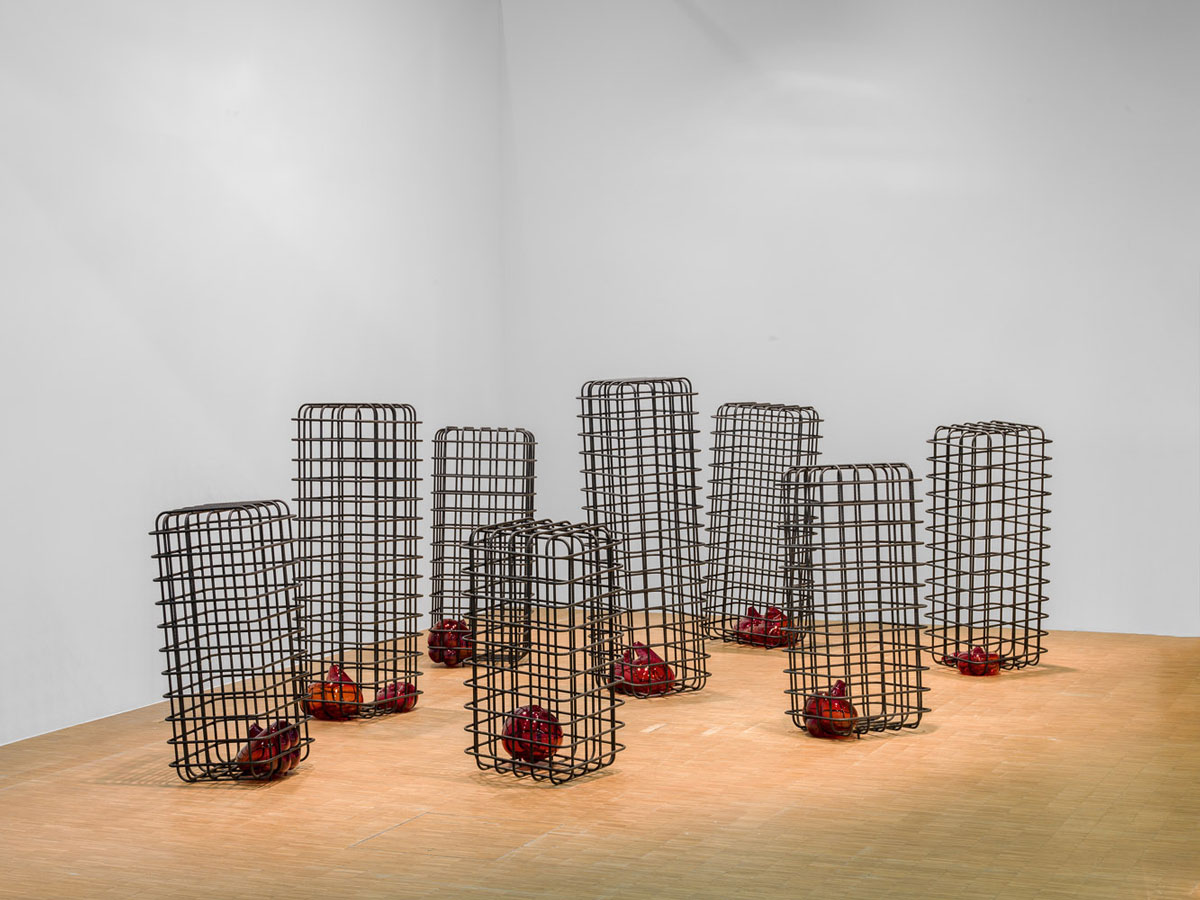

Right: Käthe Kollwitz, “Never Again War”, 1924, chalk and brush lithograph (transfer), Käthe Kollwitz Museum Cologne, photo: Käthe Kollwitz Museum Cologne
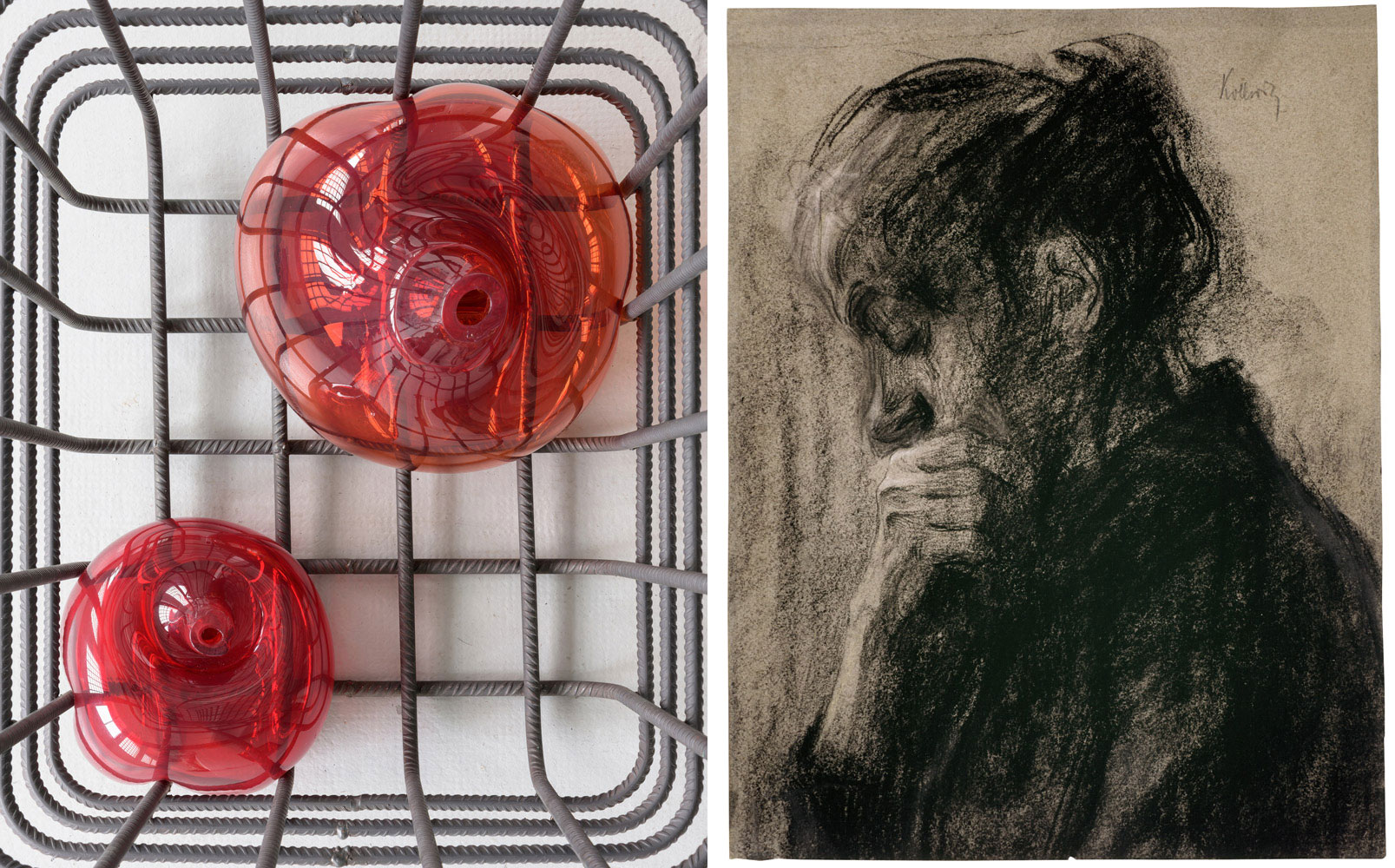
Right: Käthe Kollwitz, woman’s head in profile to the left, around 1905, charcoal, pink and yellow pastels, wiped, on olive-brown construction paper, laminated on drawing board, Käthe Kollwitz Museum Cologne, photo: Käthe Kollwitz Museum Cologne
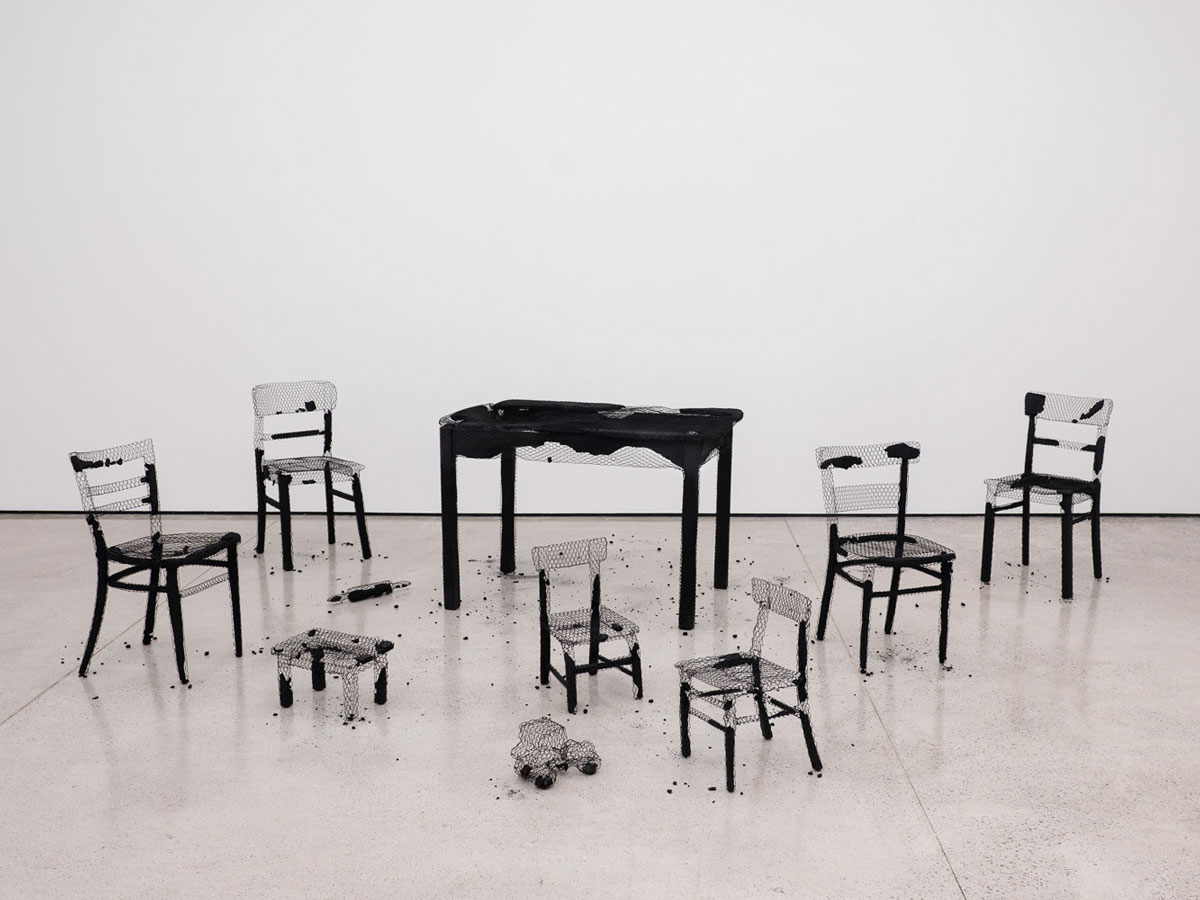
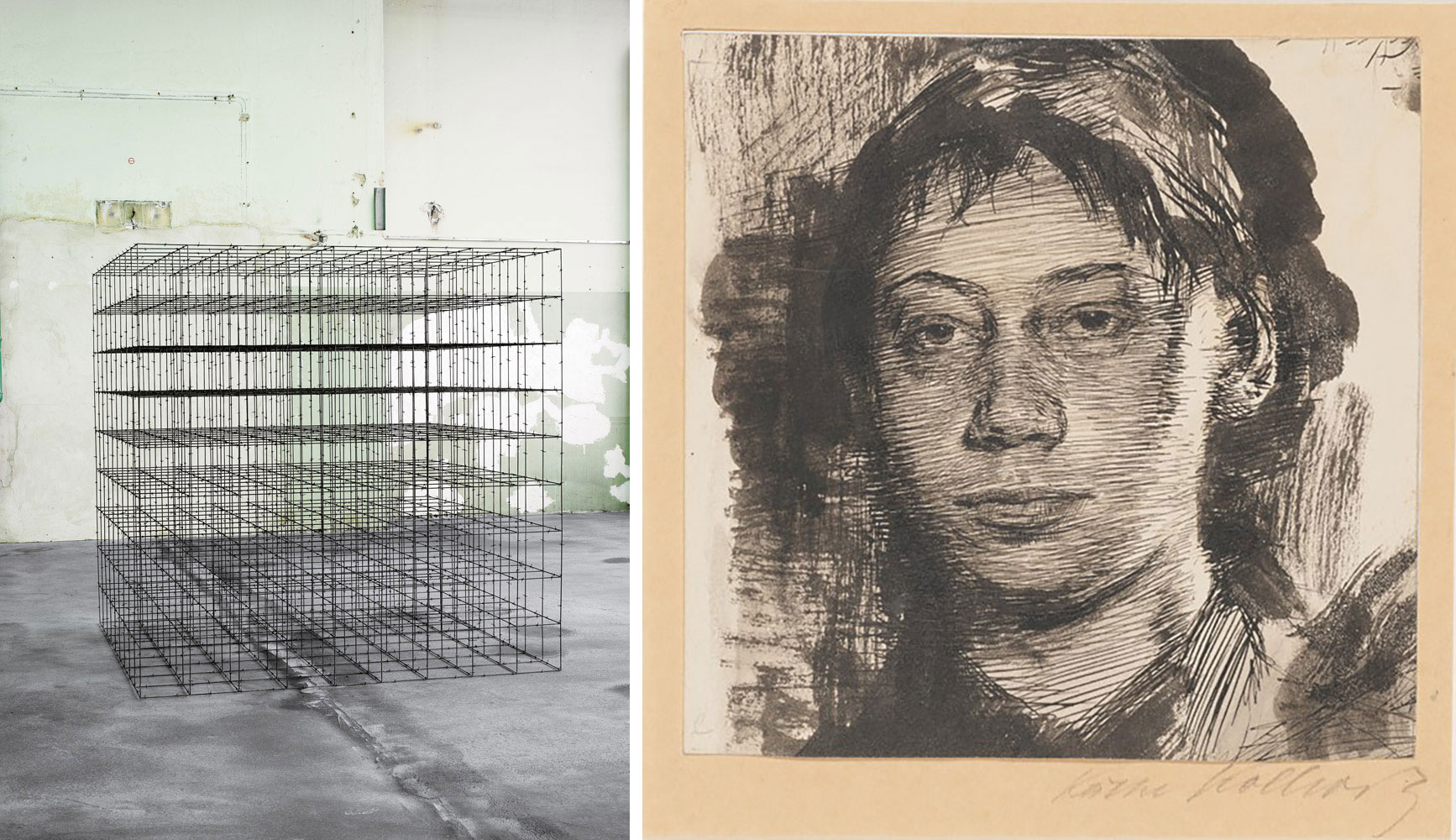
Right: Käthe Kollwitz, self-portrait (around 1890), pen and brush in ink on vellum, Cultural Foundation of Saxony-Anhalt, Art Museum Moritzburg Halle (Saale), © Cultural Foundation of Saxony-Anhalt
